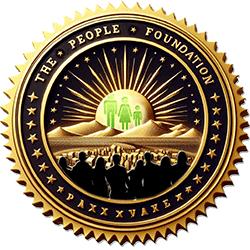
Participants in our online community service program earn credit on a 1:1 basis for their time and engagement. Work options include self-guided, growth-oriented activities focused on personal development and rehabilitation. Participants can also help us by grading anonymized journal entries from other users (a process often described as similar to group therapy) or by helping raise awareness for The People Foundation and the causes we support.
How Does this Program Work?
You can log in anytime to help our organization. We track all of your work in your online HourLog and our work supervisors review your engagement, verify it's validity, and sign-off on it. We have available activites where you can help us raise awareness online, or you can help us review and grade other participants coursework.
You can also complete your own coursework on lessons like Helping Others, Education & Mentoring, and Emotional Awareness, where you gain a better understanding of your role in society and how actions can create change.
Our program incorporates accountability measures, such as:
- Tracking and Monitoring to ensure participants are actively engaging.
- Reflection-based journal entries every 30 minutes.
- 100% supervison - All work is reviewed and evaluated by our staff.
- Completion certificates and signed hourlogs to verify hours served.

We set out to create a legitimate and accessible community service program—one that offers meaningful engagement and tools for real personal growth. Every participant’s work is reviewed and monitored by actual staff, ensuring that what’s being done is genuine, valuable, and verifiable.
Questions? View FAQ
orCall Us: 1-844-659-0000
Our Program Is Monitored for Validity
All work is supervised and our platform incorporates a peer review system, where reviewers evaluate the quality and authenticity of each participant's anonymized work. Ratings like "High Effort," "Acceptable," or flags such as "Low Effort" or "Cheating" help our team maintain a transparent record of engagement. These scores are logged and used to calculate an overall grade, which helps our work supervisors evaluate each participant's engagement and and at the same time encourages each participant to reflect on their own decisions through the lens of other people's perspectives. These peer review sessions also help each participant strive for their own higher levels of engagement.
Additionally, our programs are developed and reviewed by a team of trusted professionals - including doctors, clinicians, professors, licensed psychotherapists, clinical psychologists, and certified behavioral health coaches. Every lesson is designed not only to fulfill service hour requirements, but to encourage meaningful self-reflection and real personal growth. This is not a loophole - it's a purpose-driven program built to educate, empower, and support long-term change.

Accepted and Recognized Around the USA

The Benefits of Online Community Service
1. More Meaningful Rehabilitation
Traditional community service often focuses on physical labor such as picking up trash or assisting with manual tasks.
Online programs take a different approach by emphasizing self-improvement and rehabilitation. Through structured courses and participating in reflective coursework, participants gain insights into their behaviors and learn strategies to avoid making similar mistakes in the future. This educational and therapeutic approach helps reduce repeat offenses and fosters long-term positive change.
2. Accessibility and Convenience
One of the biggest advantages of online community service programs is their accessibility. Many people including juveniles face barriers that make traditional in-person service challenging, such as:
- Lack of transportation to service sites.
- Busy school schedules and family responsibilities.
- Health concerns or safety issues that limit mobility.
With an online program, participants can complete their required service hours from anywhere with an internet connection. This flexibility ensures that fulfilling their obligations does not interfere with school, work, or other responsibilities.
3. Encouraging Self-Reflection and Emotional Growth
A key component of online community service programs is self-reflection. Unlike traditional service that may involve repetitive tasks, online programs require participants to:
- Read, watch videos, and listen to educational material about important life topics.
- Answer guided reflection questions that encourage critical thinking.
- Engage in activities that promote self-awareness and goal setting.
By reflecting on their past actions and thinking about their future, participants can begin to see community service as an opportunity for growth rather than just a punishment.
4. Skill-Building for the Future
Traditional community service often teaches basic skills such as teamwork and responsibility, but online programs can go even further by providing participants with real-world knowledge and personal development tools.
Online courses can help participants develop:
- Critical thinking and decision-making skills
- Conflict resolution techniques
- Time management and goal-setting strategies
- Increased digital literacy (which is valuable for modern careers and education)
5. Reduced Stigma and a More Comfortable Learning Environment
For some participants, in-person community service can feel embarrassing or stigmatizing, especially if they are required to serve alongside individuals who are aware of their legal or disciplinary circumstances.
Online programs provide a private and judgment-free environment, allowing participants to focus on personal development without the fear of being labeled or criticized. This reduces resistance to participation and makes participants more receptive to the lessons they are learning.
6. Flexibility for Different Learning Styles
Everyone learns differently. Some individuals thrive in hands-on environments, while others absorb information better through reading, video, or discussion-based formats. Online community service programs cater to diverse learning styles, making the material more engaging and ensuring that participants retain the lessons being taught.
Welcome to A New Era of Community Service
Online community service is not replacing traditional service but offering a modern and effective alternative that emphasizes personal growth and rehabilitation. For participants, online community service is more than just fulfilling a requirement—it’s an opportunity to rewrite their future.

